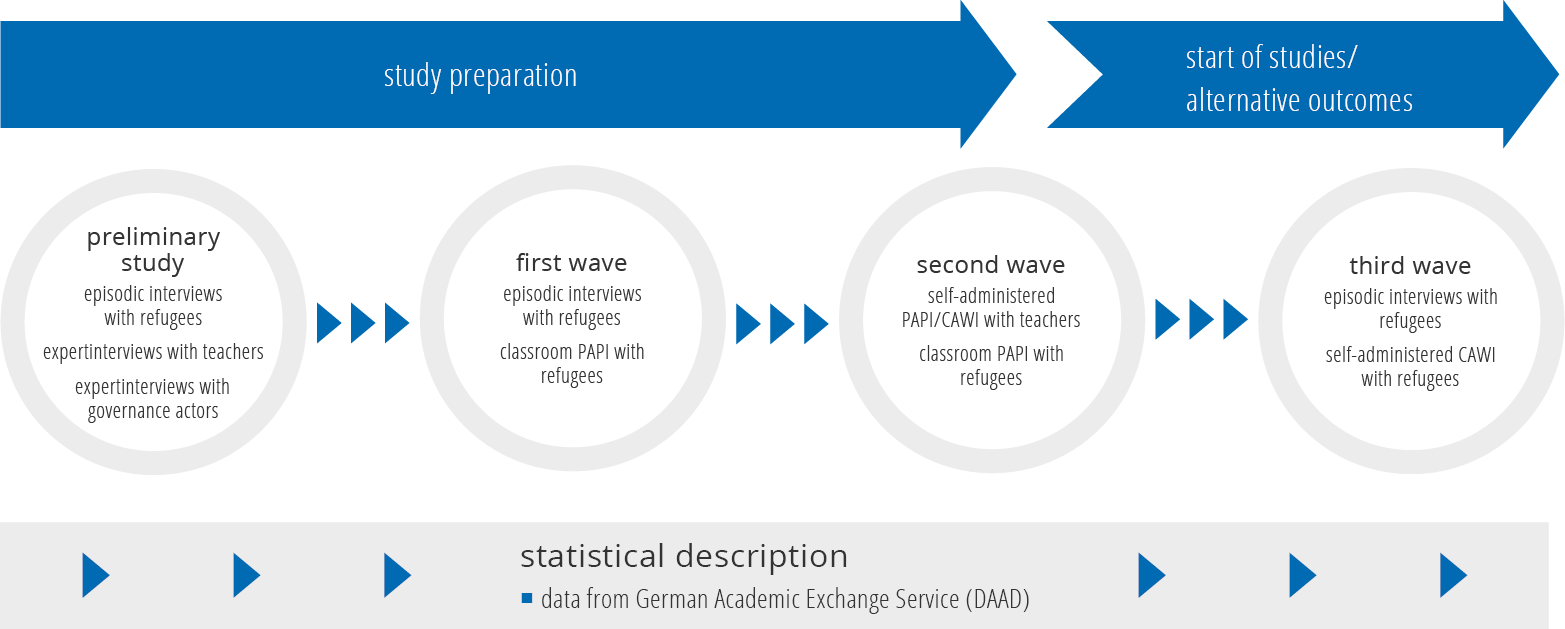project description
A mixed methods study on the conditions of effective access to higher education for prospective students with a refugee background
Many recently arrived refugees and forced migrants in Germany, most of them from Syria and Iraq (some from Afghanistan, Eritrea or Iran), hold secondary school degrees or have already studied at universities of their country of origin before they fled from terror or war. This situation generates, first, an opportunity to integrate these people into the German higher education system to overcome a deficit perspective and build on existing educational aspirations and second, a challenge for German universities, universities of applied science, and preparatory colleges.Our study is the first to investigate the situation of refugees taking preparatory courses as a way into German universities. Our focus is on the meaning of higher education aspirations for refugees in Germany, their prerequisites, educational habitus and personal situation in regard to their prospects for achieving a German university entrance qualification and taking up study, as well as on the interrelation of the individual initial situations, learning environments and institutional contexts. Our study is funded by the Federal Ministry of Education and Research (BMBF).
We are conducting a mixed method study integrating a quantitative panel study of refugees and other migrants in preparatory courses, qualitative expert interviews with staff from universities and preparatory colleges, and a qualitative panel of episodic interviews with refugees planning to study at university. The study takes place at different regional clusters scattered across Germany, at universities, universities of applied science, and preparatory colleges.
At preparatory courses we plan to administer paper and pencil classroom interviews (PAPI) with refugees and a comparison group of other foreign students from diverse cultural backgrounds. We intend to administer a panel of three waves with a PAPI in the first and an online interview in the second wave and third wave. While the first and second waves examine the start-up and final phase of the preparatory courses, the third wave investigates the progress of the participants' first university semester or alternative pathways.
Our study helps to understand the way of refugees into the German higher education system, revealing the barriers and capabilities in this process. Moreover, the study will be fruitful for constructing adequate measures of study preparation in line with the demands of forced migrants as well as other international students.
Project flyer (in German)
study design




